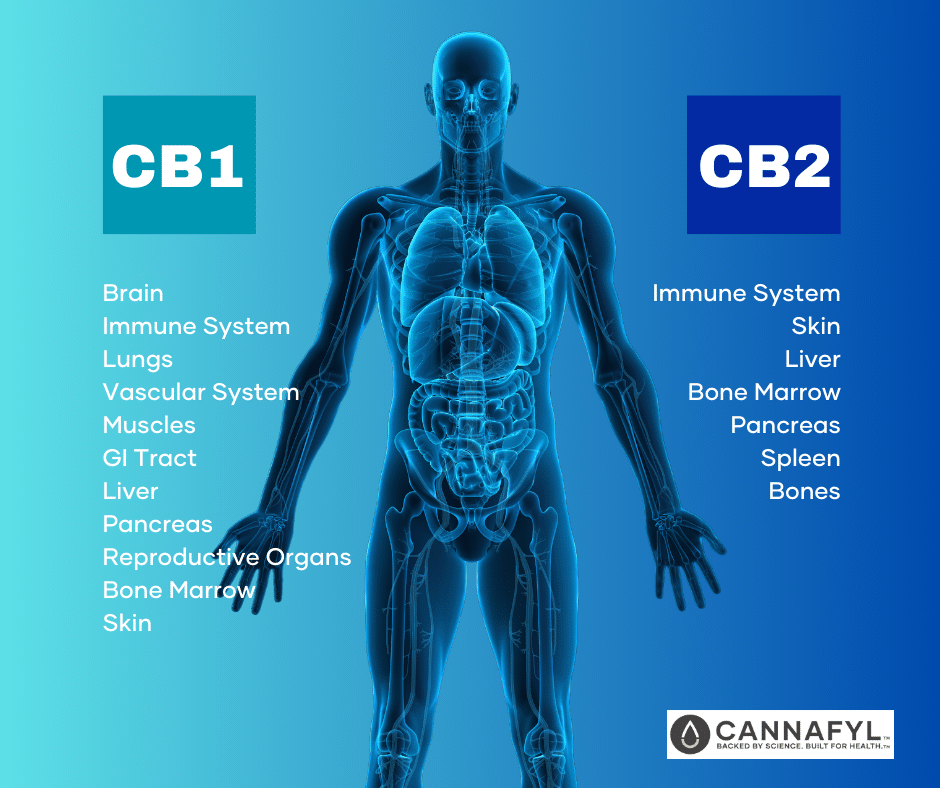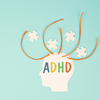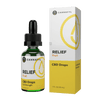What to know about your Endocannabinoid System (ECS)

Understanding Your Endocannabinoid System (ECS): The Hidden Key to Balance and Energy 🌿
If you’ve ever wondered how CBD actually works in your body, it all starts with something called the Endocannabinoid System (ECS). This powerful internal network helps regulate everything from sleep to mood to energy and it might just be the key to feeling balanced, focused, and strong at every age.
Most of us have heard about systems in our body like the nervous system, the immune system, or even the “fight or flight” response that kicks in when we’re under stress. But there’s another system, one that many people still don’t know about quietly working behind the scenes to keep everything running smoothly.
It’s called the Endocannabinoid System (ECS), and it’s one of the most remarkable networks in the human body. The ECS helps regulate how we feel, heal, sleep, think, and even how much energy we have throughout the day.
What Is the ECS?
The ECS is a vast communication network made up of receptors, enzymes, and naturally produced molecules called endocannabinoids that are found throughout your brain, organs, immune system, and even inside your cells.
You can think of it as your body’s built-in balancing system. When something goes off track, whether it’s your mood, your energy, your sleep, or your stress, the ECS steps in to help restore harmony.
There are two main types of cannabinoid receptors:
-
CB1 receptors, located mostly in the brain and nervous system, which help regulate mood, memory, pain, and sleep.
-
CB2 receptors, found mostly in the immune system, which help control inflammation and immune function.
Your body produces its own cannabinoids called "endocannabinoids" to activate these receptors and help your systems communicate efficiently. The first one discovered was anandamide, named after the Sanskrit word for “bliss.” (Yes, your body actually produces its own natural “feel-good” molecules!)
The ECS and Your Mitochondria: Powering You from Within
Here’s something most people don’t know, your ECS doesn’t just work on the surface of your cells. Scientists have discovered ECS receptors inside the mitochondria, the tiny “power plants” that create the energy your body runs on.
As we age, our mitochondria naturally slowdown, which can leave us feeling more tired, less resilient, and slower to recover. But when your ECS is in balance, it helps keep your mitochondria active and efficient so your cells can produce energy more effectively.
That’s why supporting your ECS is so important for maintaining energy, focus, and vitality as you age.
How CBD Interacts with Your ECS
CBD (cannabidiol) doesn’t “turn on” your ECS like a switch, it helps it work more efficiently. When you take CBD, it gently supports your body’s own endocannabinoids, helping them stick around longer and signal more effectively.
Think of it like giving your ECS a little more time and space to do its job. This helps:
✅ Reduce oxidative stress, which wears down your cells and mitochondria
✅ Calm the nervous system, easing tension and promoting steady energy
✅ Support deeper, more restorative sleep
✅ Soothe inflammation, helping your body recover and stay balanced
CBD is often called a modulator, meaning it helps your ECS find equilibrium, not too much, not too little. The result is a sense of calm focus and natural vitality, without the grogginess or highs associated with other approaches.
Why Balance Matters
When your ECS is functioning well, your body can adapt more easily to stress, recover faster from physical or emotional strain, and maintain the steady, natural energy that keeps you feeling your best.
This isn’t about chasing more energy it’s about helping your body use the energy it already has more efficiently.
Whether you’re a wellness enthusiast staying active or simply someone looking for supportive care as you age, keeping your ECS in balance is one of the most powerful ways to nurture your overall health.
Supporting Your ECS Naturally 🌿
-
Eat nutrient-dense foods rich in omega-3s and antioxidants
-
Get consistent, moderate exercise
-
Prioritize sleep and hydration
-
Spend time outdoors in natural sunlight
-
Use high-quality, full-spectrum CBD to help maintain balance and calm
At Cannafyl, we believe in supporting your body’s natural ability to thrive not override it. That’s why our full-spectrum CBD oils and topicals are designed to work with your ECS, helping you stay centered, energized, and ready for whatever the day brings.
Because wellness isn’t just about treating symptoms it’s about understanding how your body works and giving it the support it deserves. 💚
Explore our full line of full-spectrum CBD products thoughtfully crafted to help you feel the difference from within.
These statements have not been evaluated by the Food and Drug Administration.
-
Posted in
benefits of cbd, cannabinoids, ecs, full spectrum cbd








